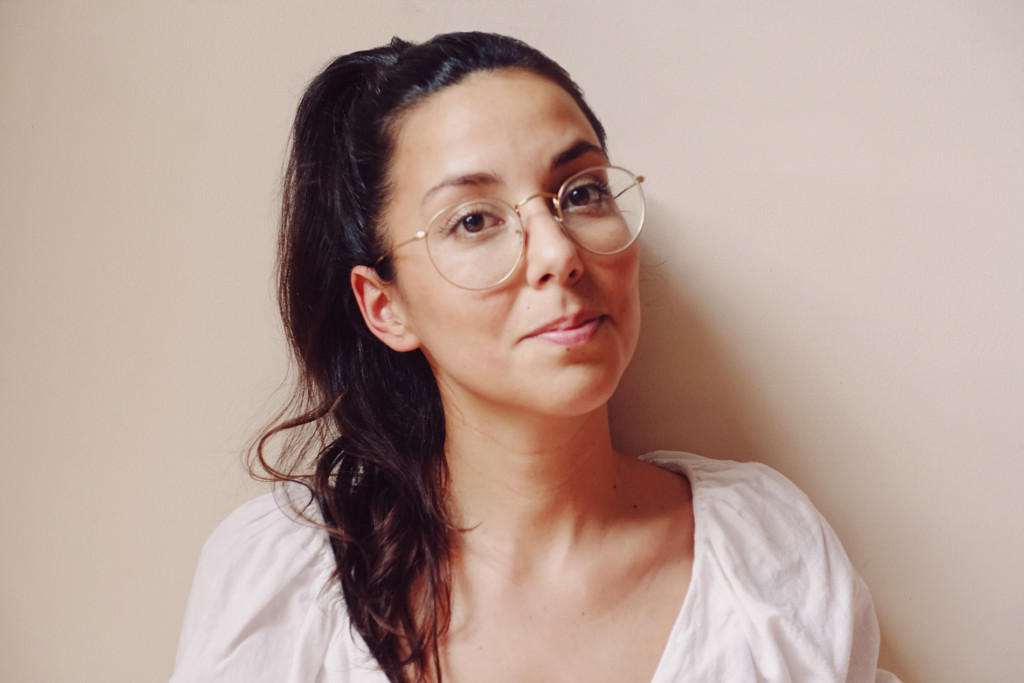On April 27, 2017, the United Nations named April 21st as World Creativity and Innovation Day; a day of observance to encourage people to use creativity in problem-solving for all issues related to sustainable development.
On the week of 2019’s World Creativity and Innovation Day I spoke to designer and Echos’ Design Thinking Experience alum Marina Moreno about Design Thinking, creativity and changing the world.
Here’s our chat:
RG – Who is Marina Moreno?
MM – Well, I’m from the Canary Islands in Spain… for many people, the Canary island is a destination paradise, for me my sweet home. I arrived in Australia last August, and I decided to settle here as I think there are many opportunities to explore Strategic Design and Innovation. About my hobbies, I love to do ceramic. Making pieces come to life while handling the material on the wheel, centring the clay with your hands while you align your thoughts, being so present. I just love it! But my greatest passion is travelling, and not only because of the places, but even more for the people. I love travelling by myself as I can be more aware of what is happening around me, and in this way, learn more about the culture, the people, and also connect more with the locals. It is amazing how people can receive your energy and open your heart. I was travelling last year for a project in which I connected with local artisans. (You can check out Marina’s project here).
RG – That’s so amazing! This interview is going to be featured on our “World Creativity Day” Newsletter issue, which I find very appropriate since you are such a creative being. Can you tell our readers what you do for work?
MM – I’m a human-centred designer with a background in Product Design (Industrial Design), which means that – now – my focus is not only in products anymore, but my approach has always been human-centred. I’ve based all my work on research, and I always look for the balance between the meaningful experience for the human involved and the sustainability solution for our planet. I think now my mission is to start to think more about the systems: humanity, society, and so on, so I can create solutions that address our community’s needs to create desirable futures. This is the reason I am so excited about Echos’ new course Designing Desirable Futures! (smiles)
RG – Speaking of Echos courses and events, you attended Echos’ open event – Christmas Innovation Day – last year and were the lucky participant to win the “Design Thinking Experience raffle”. You since have attended the course in Sydney. Tell us about your experience with Echos.
MM – Since the first event, I felt the professionalism and the passion that the Echos team has. Spreading the knowledge of Design Thinking with all their passion is such a valuable experience for people who receive it. Echos have a human-centred approach, and it is almost tangible. During the course, you feel the safe atmosphere to create and explore the process, the people, and also yourself.
RG – In your opinion, why is innovation important in your field of work?
MM – I think innovation is important for all work fields. We are in an ever-changing world, and adaptation is not enough. We need to create new ways to live, to interact and to understand the present, the past and the future.
RG – When was the first time you heard about Design Thinking?
MM – I think that the first time I really heard about “Design Thinking” was probably in my Master in Product Design in Barcelona; this was around 5 or 6 years ago. Even though I didn’t know it by this name, I was using it before! But now, it is definitely much more present than at that time. And the interesting part is that many people from different fields are using it. I’m so happy that people are catching on and believing in the power of design and using it!
RG – What were your biggest learnings during Echos’ Design Thinking course?
MM – I would say the improvement you can achieve at the prototyping phase. I think that because of the little time you have to build the prototype, you can’t build a fixed idea, you have to develop an idea that is still in progress, and that is the essence of this phase. So you modify and adapt according to the feedback in order to achieve the best solution. And yes, you do see the results! You see the evolution of the idea. That’s why there is a big learning in the prototype phase because most of the time with the most traditional processes we arrive at a static idea at the prototyping phase. (In traditional processes) I would say that there is also a sense of being “in love with the solution”, which only allows for small changes that are not as disruptive as in Design Thinking process. The prototyping moment is so important because you start to have a feel about the solution – does it work or not? That’s Echos’concept at its best: “learning by doing”.
RG – Did you learn anything new about yourself whilst attending our course?
MM – It reminded me of my life mission, which is to use design and innovation to create a positive impact in our society, and on how society feels like. I feel completely alive when I’m doing DT, also sometimes overwhelmed as it is also hard work, and the three days are intense but… it is worth it! The results are really good.
RG – Are you currently working on a Design Thinking project?
MM – Sure! I’m working on a project about environmental reduction damage to the coffee plantations in Colombia. I‘m so excited because I’m introducing this amazing world of Design Thinking to my team since we are using it for the development of the project. I love the moment in which the team comes up with amazing ideas and insights because we (designers) are used to doing that, but people from other fields to see how much can be done with Design Thinking is amazing, especially when they understand and solve the problem just by “being human”. I can’t wait for the moment that I am back in Colombia facilitating workshops with these warm people, all co-designing and empathising! I will keep you updated.
RG – Please do! Do you have any pearls of wisdom to share with someone who is starting their innovation journey through Design Thinking today?
MM – I would say that “being human” is the key, but for them to not forget the environment around us. I think it is also important to be aware of our assumptions and biases and try to account them during the research phase, so we can create a better solution that is inclusive for all. We cannot base solutions on our personal criteria or beliefs. Also, be open to any idea, to any tension and changes. Oh, and don’t be afraid to play!
RG – Any last thoughts before we wrap up?
MM – I would encourage everyone who wants to get into Design Thinking to take, at least, an immersive three days course as I did. It is the best way to learn the process and get through all the phases.
RG – To finalise, could you share a quote that inspires you?
MM – It is not a quote, it is a concept but… balance. Always seek balance.
RG – You’ve been a joy to chat with. Thanks, Marina.
MM – Thank you.
—
Follow us on social
Instagram – Facebook – LinkedIn – Youtube
How Can We Help?
- For training and Innovation Journeys in your company: check out our in-house course offering
- For upcoming courses in your region: visit our website.
- For upcoming events in your region: look at our event calendar.
- If you have a special project and would like to use Echos’ consultancy services: send us an email.
- Want to speak to a real person? Call us on 1300 502 006



